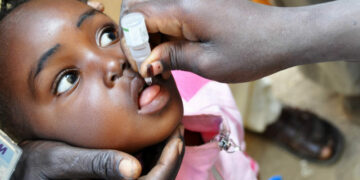The recent floods in Nigeria, especially in the North East, have unveiled a harrowing chapter in the region’s ongoing struggle with environmental and humanitarian crises. With countless lives lost and entire communities submerged, the flooding disaster underscores the urgent need for comprehensive disaster management and sustained support for affected populations.
At least 170 people have died, and more than 200,000 others displaced following weeks of flooding in Nigeria, with the North East most hit. The National Emergency Management Agency (NEMA) said at least 53 people have lost their lives to the floods in the North East.
The affected states, according to NEMA report, are Bauchi (23), Taraba (11), Yobe (10), and Adamawa (7), while Borno has recorded 2 deaths so far. Also, Jigawa recorded 34 deaths, Bayelsa 25, Kano 25, Zamfara 13, Sokoto 10, Niger 5, Ebonyi 2, Kaduna 2 and Nasarawa 1, making the number of people that have died in this year’s flood 170.
RELATED: NEMA Alerts Benue, Kogi, Anambra, Delta, 3 Others On Possible Flooding
The federal government had said 148 LGAs in 31 states are at risk of severe flooding from April to November 2024, a situation which has led to the killing of 170 people nationwide. A total of 249 LGAs in 36 states, including the Federal Capital Territory (FCT), are considered ‘moderate flood risk states.’
The North East region of Nigeria, already grappling with the aftermath of years of insurgency and economic instability, has been further battered by severe flooding. Torrential rains and inadequate drainage systems have led to widespread inundation, displacing thousands and causing extensive damage to homes, infrastructure, and agricultural lands. The human toll is devastating, with reports of numerous fatalities and injuries compounding the region’s suffering.
The floods have exacerbated vulnerabilities, particularly among displaced persons and impoverished communities. For many, the destruction of homes and livelihoods has pushed them further into poverty, creating a dire need for emergency aid and long-term recovery strategies.
The death toll from the floods is a stark reminder of the human cost of inadequate disaster preparedness and response. Lives lost to drowning, diseases related to water contamination, and the collapse of structures underline the urgent need for improved infrastructure and early warning systems. Each statistic represents not just a number but a person whose life was tragically cut short by preventable circumstances.
The North East’s flooding crisis highlights significant disaster management and preparedness gaps. The region’s infrastructure is inadequate to handle extreme weather events, and logistical challenges and resource constraints have hampered the response.
Government responses have included some emergency relief efforts, but these have been criticised for their lack of coordination and scale. The response has often been reactive rather than proactive, with insufficient attention to building resilience and preparedness for future disasters.
Addressing the flooding crisis requires a multifaceted approach beyond immediate relief efforts. Investing in robust drainage systems and flood defences is crucial. Improved infrastructure can mitigate the impact of heavy rains and reduce the risk of flooding in vulnerable areas.
Developing and implementing effective early warning systems can provide timely alerts to communities, allowing them to prepare and evacuate if necessary. This requires both technological advancements and community education.
A coordinated response involving government agencies, humanitarian organisations, and local stakeholders is essential. Clear communication and collaboration can ensure that aid is distributed efficiently and reaches those who need it most.
Beyond immediate relief, there must be a focus on long-term recovery and rebuilding. Support for affected individuals and families, including financial aid, psychological support, and rebuilding assistance, is vital for restoring normalcy and fostering resilience.
The floods in the North East are a clarion call for a renewed commitment to disaster preparedness and humanitarian assistance. As the nation grapples with the aftermath, there is an opportunity to build a more resilient and responsive disaster management framework that can better protect vulnerable populations in the future.
We must harness the lessons learned from this disaster to drive meaningful change. By investing in infrastructure, enhancing early warning systems, and fostering community resilience, Nigeria can better prepare for and mitigate the impacts of future natural calamities. The lives lost and the suffering endured must serve as a catalyst for progress, ensuring that preventable disasters do not claim more lives.
Solidarity and action are critical in this moment of crisis. Let us as a nation and government unite to support the affected communities and work towards a safer, more resilient future for all.





